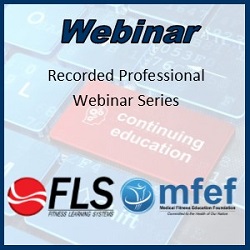
By: Joel Fuhrman M.D.
Webinar Description:
This presentation enables people to understand the serious health risks associated with processed and fast food consumption, even from occasional use. These "Frankenfoods" do not merely increase death from heart disease and cancer, but also impair the human brain creating depression, lowering intelligence and increasing propensity for drug abuse and crime. Importantly, the worst food choices create food addiction, leading to excessive caloric intake and dependency. Alternatively, recent advances in nutritional science can enable us to effectively prevent cancer, heart disease and dementia; pushing the envelope of human longevity and preventing a tremendous amount of human tragedy. This presentation can save your life; and by working collectively we can save millions of people from needless suffering.
Education Level: All Levels
Prerequisites: None
Successful completion of the quiz is necessary to receive Continuing Education Credit.
Approved for:
| 1.0 | American College of Sports Medicine (ACSM) |
| 0.5 | National Council on Strength & Fitness (NCSF) |
| 1.0 | National Strength Professionals Association (NSPA) |
| 1.0 | YMCA |
Note 1: NSCA offers continuing education to those who take the Live Webinar. To get 1 Hour of NSCA continuing education credit, you must watch the webinar live, and then contact Ivy@medicalfitnessnetwork.org to receive a Certificate of Attendance.
Webinar Objectives:
After completing this course you will be able to:
- To understand the health risks associated with processed food and fast food consumption.
- Awareness of the health risk associated with urban food deserts and lack of access to supermarket produce.
- To review evidence implicating fast food and processed foods to reduce intelligence and increase propensity for violence and crime.
- To gain further understanding of food addiction and the properties of foods that increase their addictive potential, leading to excessive caloric intake.
- How to recover from food addiction and be able to control overeating behavior.
System Requirements to View This Webinar
This webinar is tablet enabled and can be viewed on an iPad or Android tablet as well as a PC or MAC Computer
